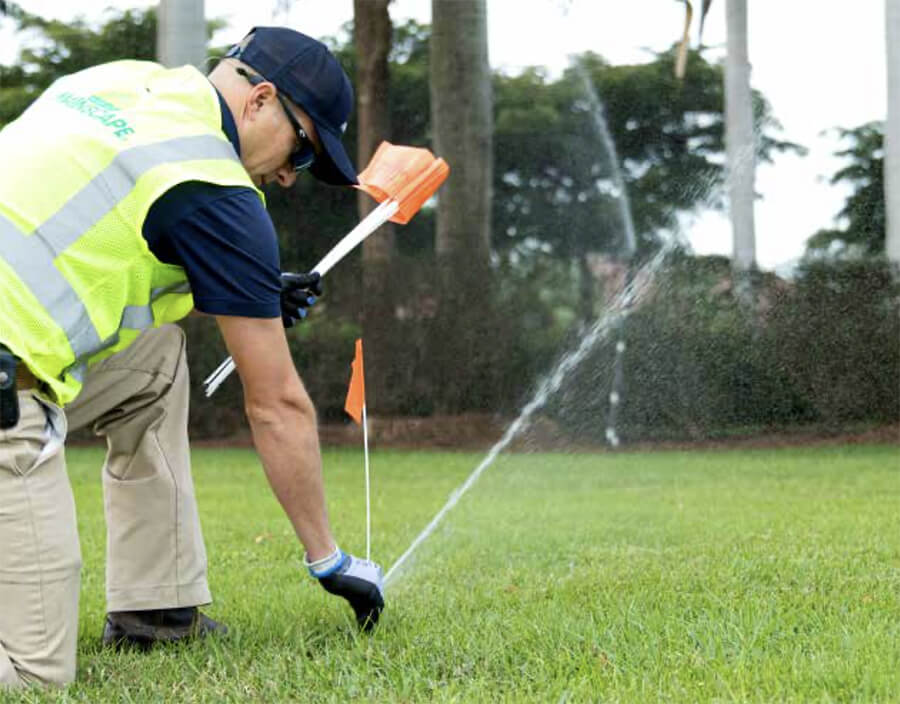During spring season, temperatures throughout Florida moderate from the mid to upper 70s to the low 90s. Increasing temperatures cause landscapes to demand more water. In fact, these weather conditions cause the landscape’s demand for water to be its highest of the year.
Historically, the area receives very little rainfall in spring, making irrigation systems essential to maintaining beautiful landscapes. As conditions escalate, it’s not uncommon to see irrigation consumption increase as much as 30–50% each month throughout spring. To minimize these increases, it’s imperative the efficiency of the irrigation system be maximized. Many factors such as blocked, crooked and broken sprinkler heads can affect overall efficiency.
Mainscape’s irrigation team works diligently to prepare and makes necessary adjustments to meet the landscape’s demand for water.
- Areas where water restrictions allow irrigation only once or twice a week will experience less than desirable landscape performance during weeks without rain. Days just prior to irrigation events will be the worst. Irrigation team members can provide general irrigation program information to make clients aware of these conditions. Due to constant adjustments to irrigation, we’re unable to give specific times individual zones will run. However, we should be able to share what days of the week irrigation is scheduled.
- Properties using potable water for irrigation can expect significant increases in water bills as the landscape’s demand for water intensifies.
- Installation of new plant material will be challenging during dry conditions and will significantly increase water consumption. Clients should consider waiting until rainy season begins in mid to late June to install new plant material. Sod installation is even more challenging given shallow root zones. We urge waiting for rainy season where possible. Keep in mind water restrictions only allow irrigation grow in programs on zones where more than 50% of the landscape or turf is new.
- Please use the customer service request (CSR) system to report irrigation issues. Where possible, avoid contacting team members in the field directly. The CSR system receives all requests and prioritizes them to be addressed in a timely manner.
While irrigation team members perform irrigation inspections throughout the year in preparation of dry season, hot spots are inevitable given high temperatures and lack of rainfall. Irrigation issues can become noticeable and problematic in a matter of hours rather than days. We appreciate your understanding and patience under these circumstances.
